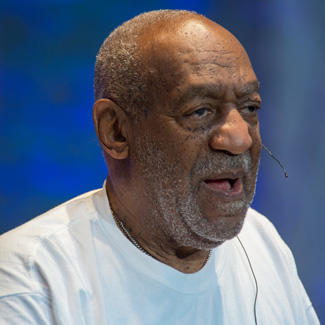How the New York Times obtained Bill Cosby's deposition transcript without a court order or leak

Bill Cosby performs at Thunder Valley Casino Resort in Lincoln, California, in September 2014. Image from Randy Miramontez / Shutterstock.com.
It turns out that Bill Cosby’s full deposition in a 2005 sex-abuse suit may have been publicly available all along.
The New York Times says it obtained the deposition transcript, which was never sealed, through a court reporting service. According to the newspaper’s story on the contents, Cosby displayed “casual indifference” as he described his pursuit of at least five women with promises of mentoring and career advice.
“Even as Mr. Cosby denied he was a sexual predator who assaulted many women,” the Times says, “he presented himself in the deposition as an unapologetic, cavalier playboy, someone who used a combination of fame, apparent concern and powerful sedatives in a calculated pursuit of young women—a profile at odds with the popular image he so long enjoyed, that of father figure and public moralist.”
A confidentiality agreement barred the parties from releasing the document, but the deposition itself was never sealed, according to the Times.
The lawyer who represented Cosby in the suit, Cozen O’Connor vice chairman Patrick O’Connor, told the Philadelphia Inquirer he believes release of the transcript violated the terms of the settlement.
“How that deposition became public without being court-sanctioned is something we are going to pursue and deal with very vigorously,” O’Connor told the Inquirer. “It’s an outrage that the court processes weren’t followed here.”
Parts of the deposition—in which Cosby admitted securing Quaaludes with the intention of giving them to women with whom he hoped to have sex—were publicized when a judge ordered the release earlier this month of a legal memorandum in the suit by a Temple University employee.
Cosby denied giving Quaaludes to the plaintiff, and said those women who did get the drugs knew what they were taking. Asked if one of those women was able to consent to sex after she took the drugs, Cosby answered, “I don’t know.”
O’Connor was a Temple University board member when he defended Cosby, who was also a board member until last December. O’Connor is now chairman of that board. O’Connor defended the dual role in his interview with the Inquirer, saying he had a right to do his job as a lawyer and Cosby had a right to counsel.
Subsequent article:
ABA Journal: “Cosby lawyers blame his accuser for release of his deposition by court reporting service”



